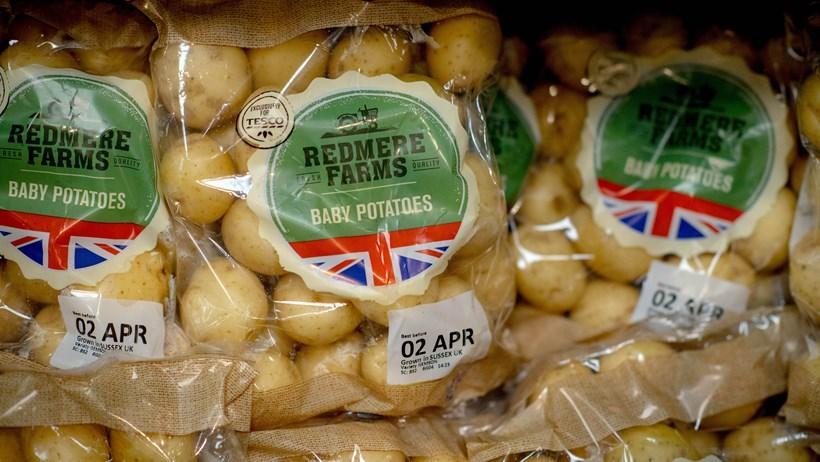Tesco removes best before dates on fruit and veg in bid to reduce food waste
Supermarket made decision based on research by Women's Institutes

Tesco has announced plans to remove best before dates from almost 70 fruit and vegetable products in an effort to reduce the amount of usable food being thrown away.
Best before labels will be removed from popular lines such as apples, potatoes, tomatoes, lemons and other citrus fruit and onions, among others.
The supermarket said its decision was based on research by the National Federation of Women’s Institutes (NFWI) which found that less than half of respondents understood what ‘best before’ dates mean. Best before date labels are added by retailers as a quality indication, and show that food might not be at its best but is still edible. Use by labels indicate that there is a safety risk if food is eaten after a certain date.
The Food Standards Agency states that “the best before date, sometimes shown as BBE, is about quality and not safety. The food will be safe to eat after this date but may not be at its best.”
“We know some customers may be confused by the difference between ‘Best Before’ and ‘Use By’ dates on food and this can lead to perfectly edible items being thrown away before they need to be discarded,” said Tesco’s head of food waste, Mark Little.
“We have made this change to fruit and vegetable packaging as they are among the most wasted foods," he added.
“Many customers have told us that they assess their fruit and vegetables by the look of the product rather than the ‘Best Before’ date code on the packaging.”
The move follows a pledge by Tesco last year to end edible food waste by March 2018. Chief executive Dave Lewis said in December 2017 that the supermarket would become the first UK retailer to stop throwing away food suitable for human consumption, and challenged rivals to make a similar effort.
“If Tesco can make this work, with all of our different stores across the country, then why can’t everyone?” he said.
“So long as that food is fit for human consumption, I’d much prefer it to go to people than landfill or animal feed, or fuel.”
Join our commenting forum
Join thought-provoking conversations, follow other Independent readers and see their replies
Comments